GEOSPATIAL RESEARCH SEMINAR SERIES (GRISS) – 25 October 2019

The Geospatial Research Institute is pleased to host Dr Kat Salm. Kat has been working in the spatial industry in New Zealand across government, industry, and research/education for a number of years. She is also the winner of the 2018 New Zealand Spatial Excellence Awards (NZSEA) in the category “Women’s Leadership Award”, as well as the 2019 Asia-Pacific Spatial Excellence Awards (APSEA).
GEOSPATIAL RESEARCH SEMINAR SERIES (GRISS) – 27 September 2019

Regional Councils collect a lot of environmental data. We’re good at it and it is hugely valuable to our policy decisions and general environmental management. A recent valuation of the Environment Canterbury hydrological database was $4.2 billion, based on a mixture of the collection costs and the value of decisions made with those data. With all that data comes the challenge of data management and more importantly; how to tell a coherent story of “what’s going on”. This seminar will set out the types of data collected by Environment Canterbury and discuss possibilities for telling environmental stories in a better way.
GEOSPATIAL RESEARCH SEMINAR SERIES (GRISS) – 26 July 2019
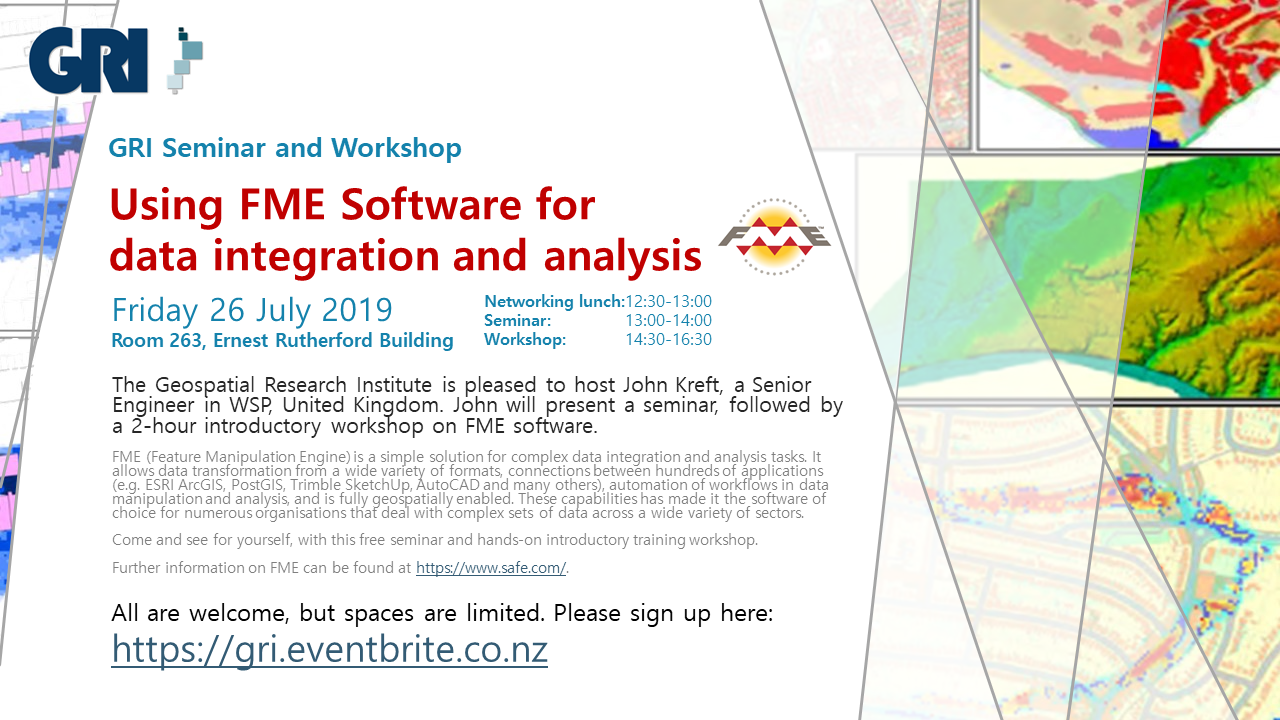
FME (Feature Manipulation Engine) is a simple solution for complex data integration and analysis tasks. It allows data transformation from a wide variety of formats, connections between hundreds of applications (e.g. ESRI ArcGIS, PostGIS, Trimble SketchUp, AutoCAD and many others), automation of workflows in data manipulation and analysis, and is fully geospatially enabled. These capabilities has made it the software of choice for numerous organisations that deal with complex sets of data across a wide variety of sectors.
GeoHealth Lab Seminar, 25 May 2019: A multidisciplinary perspective on environmental determinants of lifestyle and health
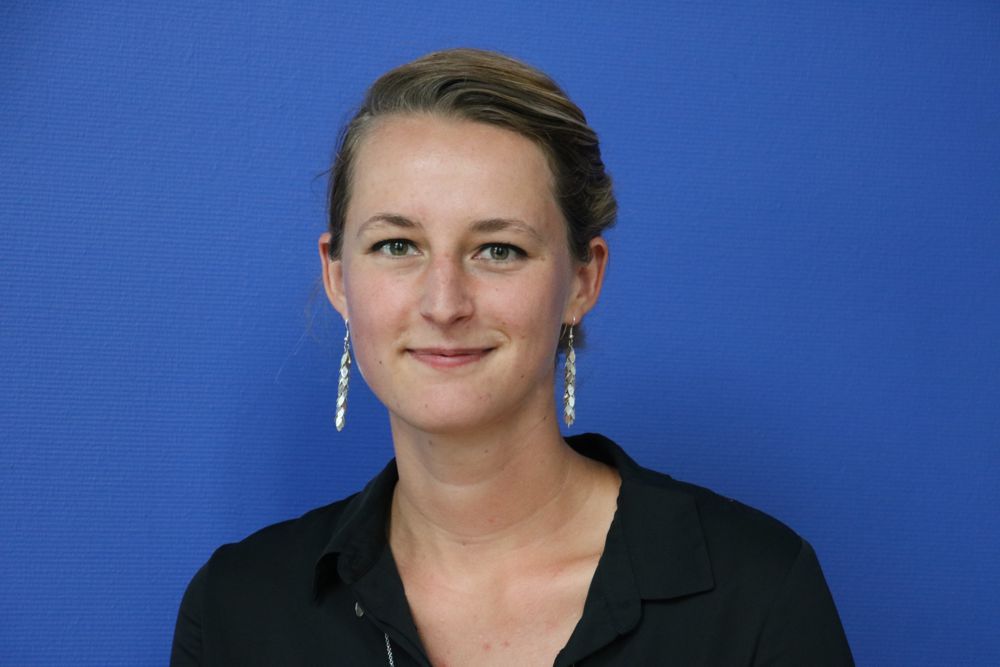
Please come along to see Dr. Joreintje Mackenbach-van Es from the Amsterdam UMC present her seminar on the environmental determinants of lifestyle and health. Abstract There is widespread consensus that our environment affects our behaviour and health, but less understanding of how this works. I will mainly focus on food and physical activity environments, but […]
GRI researcher Dr Matthew Hobbs awarded for research in obesity
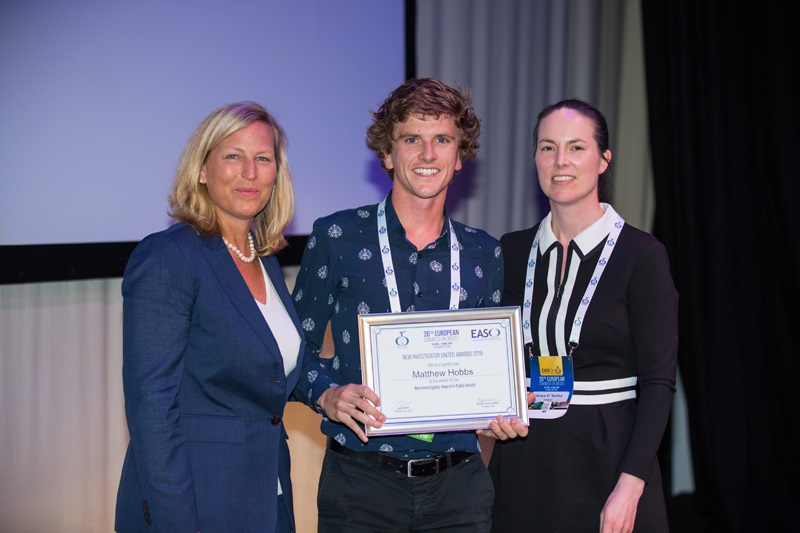
Dr Matthew Hobbs, a researcher in the GeoHealth Laboratory within the GRI at the University of Canterbury, was awarded by The European Association for the Study of Obesity (EASO) the New Investigator Public Health Award, which marks out rising stars of obesity and public health in Europe. He received the award at the EASO 2019 Annual Congress on […]
GEOSPATIAL RESEARCH SEMINAR SERIES (GRISS) – 28 June 2019
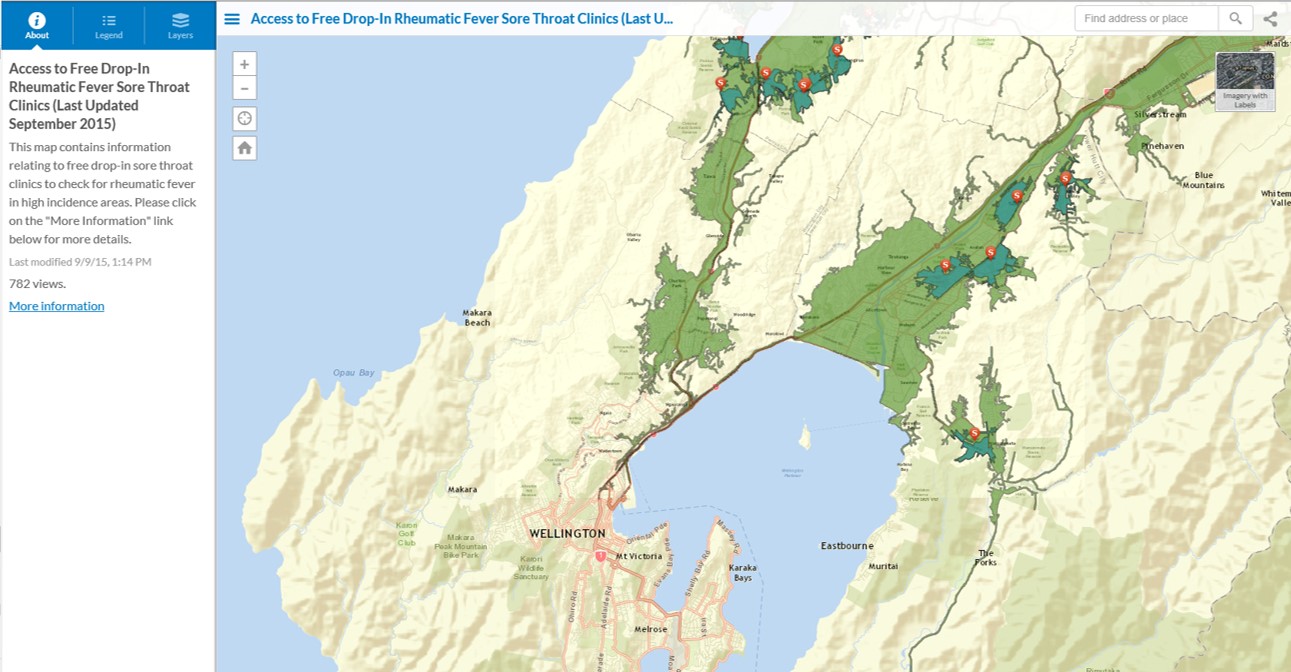
Dr John McCarthy is a Principal Technical Specialist within the Health & Disability Intelligence Group at the Ministry of Health (MoH). In this talk John will be discussing the capability and capacity for geospatial analysis at the MoH, and how geospatial evidence contributes to policy formation and Government priorities. A current project, the development of an Atlas of Cancer Variation for New Zealand, will be presented as a working example.
Submissions open: NZ Geospatial Research Conference 2019

Kia ora koutou katoa, We are pleased to announce that abstract submissions are now open for the 2019 New Zealand Geospatial Research Conference. We invite you to join us at the Queenstown Memorial Centre in beautiful Queenstown, Otago on 18 September 2019 and present your geospatial research. Please submit your abstracts of no […]
GEOSPATIAL RESEARCH SEMINAR SERIES (GRISS) – 31 May 2019
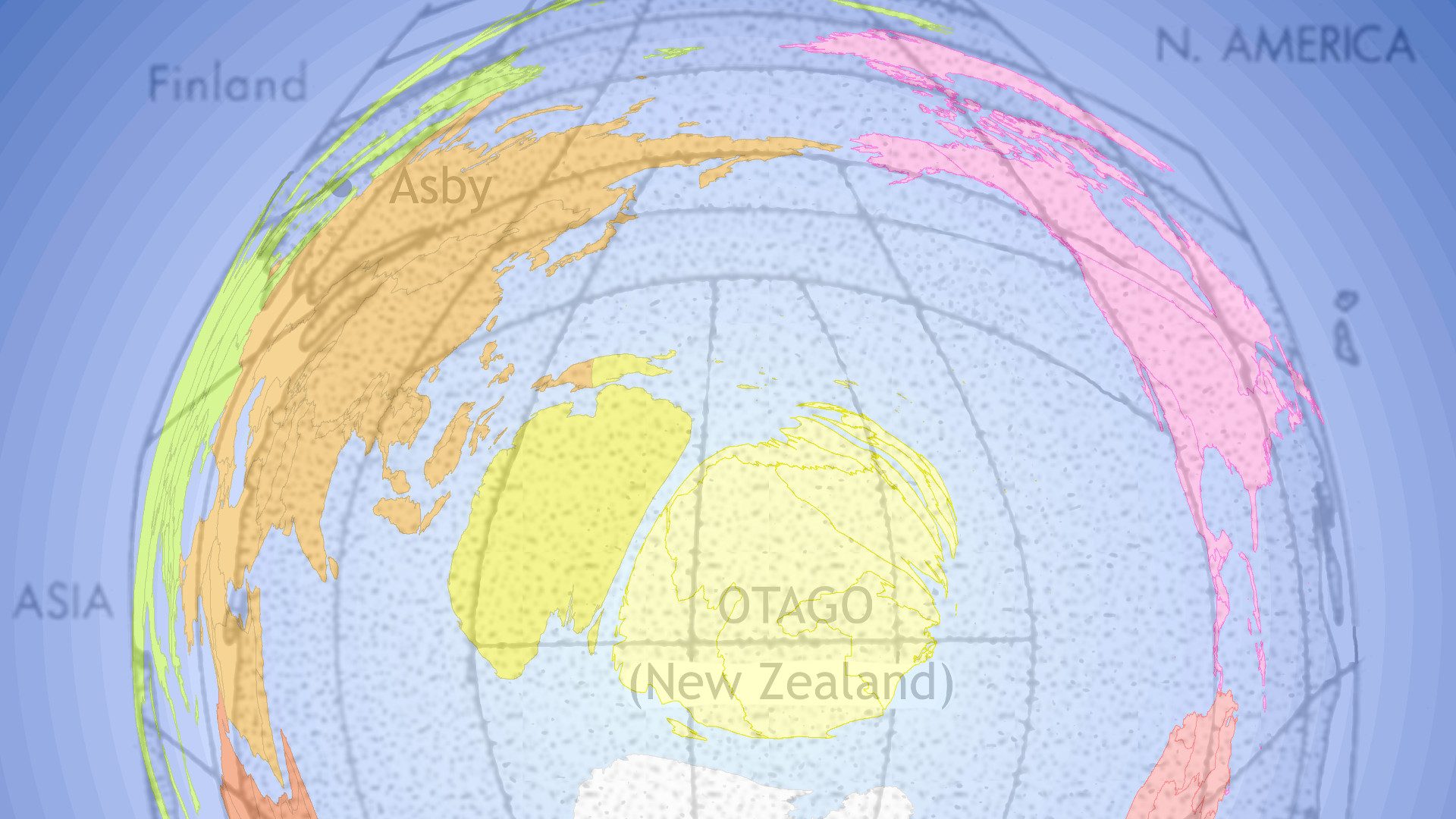
The spatial data that underpin the maps we see are often compromised by the limited space for them in the map. For example, a large amount of features have to be mapped in cities but there is comparatively less area to contain them relative to the feature-poor rural areas. We usually apply generalisation processes to select, emphasise and simplify representations of data in the map so that it “fits”. We introduce an alternative data-driven approach to allocating map space, where cartogram techniques expand or contract space to accommodate more or less data.
New GRI PhD student – Olivia Willoughby

GRI welcomes a new PhD student, Olivia Willoughby Olivia will be working on the topic of Spatial variations in Māori health outcomes, supervised by Prof. Simon Kingham and Dr. Malcolm Campbell and funded by a GeoHealth scholarship from the Ministry of Health, New Zealand. Olivia says “I started at UC a few years ago when […]
GEOSPATIAL RESEARCH SEMINAR SERIES (GRISS) – 3 May 2019
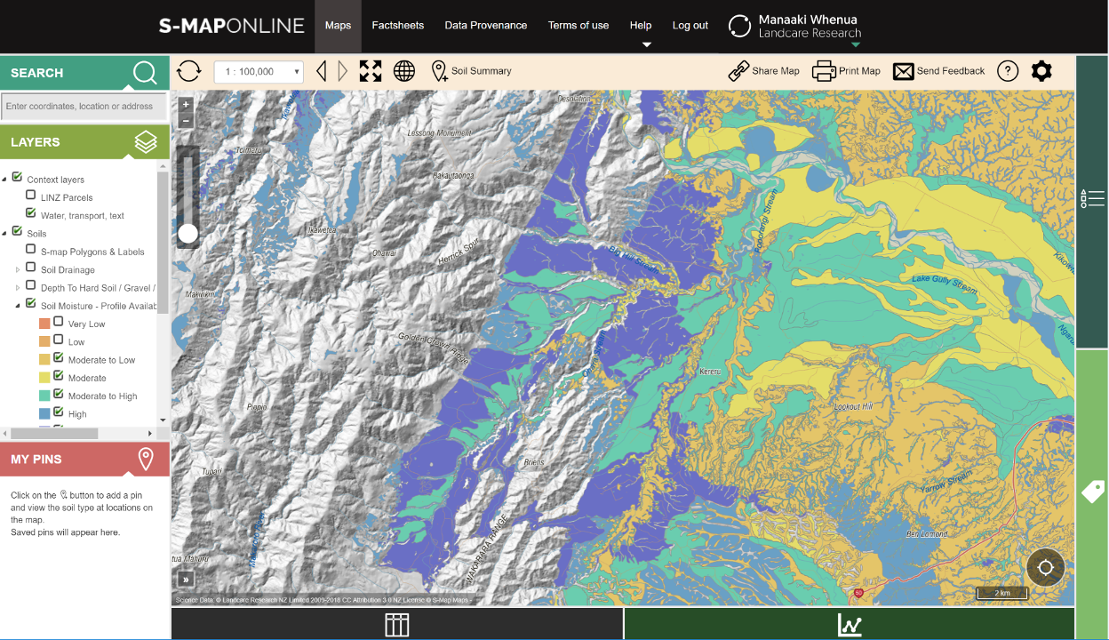
The collection and analysis of environmental data are critical to us understanding the New Zealand environment of the past, today and to anticipate the future. Conclusions drawn from environmental observations, analysis and models guide decisions and actions by governments, businesses and individuals. The complexity of the issues we need to understand require the ability to easily discover, access and use environmental data across a broad range of domains. The reality is that although environmental data is abundant, potential users are hampered by an inability to discover, access, and use the information.
